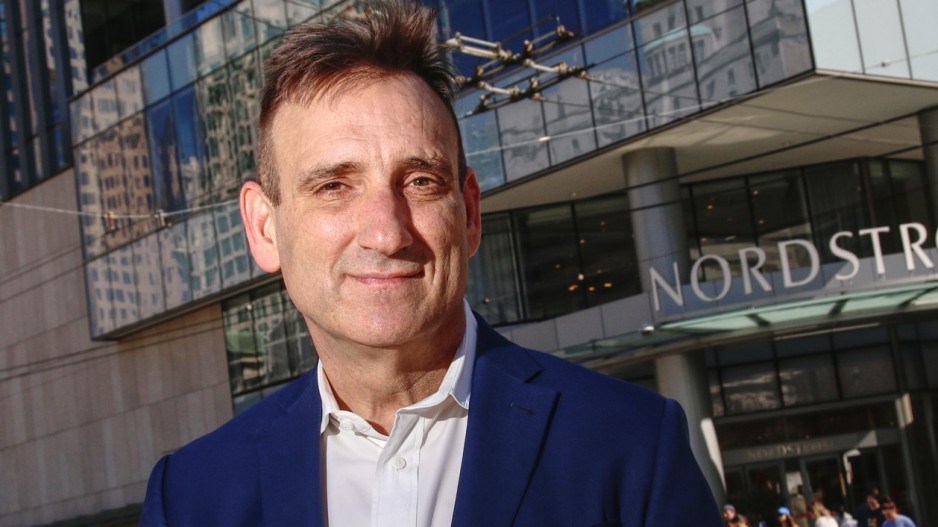Despite a storm of challenges, Metro Vancouver retailers are resilient and are starting to see silver linings in the clouds, according to a new Colliers International report.
The real estate firm says the region’s retail sector is operating under the spectre that an increasing number of store closures could be on the horizon. That would make communities less vibrant and crimp the economy.
“It is a bumpy ride,” said Colliers’ associate vice-president Sherman Scott told BIV. “There’s inflation, staffing issues, the increasing minimum wage, supply chain issues, COVID – you know, all of the above.”
His company’s Retail Thriving Amidst Change: Greater Vancouver Retail Report Spring / Summer 2023 report highlights concerning developments, such as Nordstrom Inc. (NYSE:JWN) pulling out of Canada, closing seven stores, including a 230,000-square-foot location in downtown Vancouver. Site owner Cadillac Fairview has told BIV it is considering various options for the site. Bed Bath & Beyond filing for Chapter 11 bankruptcy protection and closing 54 Canadian locations, including several in Metro Vancouver.
The report also hails the sector’s underlying strength.
Scott said many retailers are doing better than they did a year ago.
Some key takeaways from the report include that:
• Colliers’ average urban-retail vacancy rate is 3.9 per cent, down from 4.7 per cent at the end of 2022;
• Vacancy in nine out of 13 urban high streets declined in the past six months;
• Colliers suburban retail vacancy rate is 1.5 per cent, up from one per cent at the end of 2022; and
• At $3.7 billion, B.C. spending at restaurants and bars in the first quarter of 2023 was 21 per cent above the same period last year, and 24 per cent above the first quarter of 2019 – well above inflation during the same four-year period, which would have been 15 per cent.
“There are cruise ships and tourism,” Scott said. “We’re right beside Pan Pacific Hotel, and I just walked into our lobby. It's busy out there.”
The biannual report noted vacancy and lease rates for the busiest parts of major Vancouver shopping streets.
Scott touted Main Street between East Broadway and East 16th Avenue as being one strip that is becoming more popular.
“Main Street has been on the upside,” he said. “We used to see rates on Main Street at $35 or $40, whereas I've seen rates as high as $70 per square foot in the prime blocks of Main Street. It is just the cool place to be.”
The two priciest retail strips in Vancouver are Robson Street between Thurlow and Bute streets, and Alberni Street between Burrard Street and Thurlow Street, Scott said.
Rates for both of those blocks are between $180 and $240 per square foot, which is similar to pre-pandemic times, he added.
West Fourth Avenue has recently attracted retailers, such as Vivobarefoot and Adidas’ outdoor brand Terrex. Scott pinned retail rates on West Fourth Avenue, between Burrard and Yew streets as being between $80 and $125 per square foot.
The retail sector is also strong in the suburbs.
“I think all the suburbs are doing well, from what I hear,” he said. “There’s no space out there.”
He attributed strength in suburban retail markets to suburban workers continuing to work from home at least part-time and spending more shopping dollars in their local neighbourhoods.
“They're pre-leasing shopping centers years in advance,” he said. “I'm working on some deals out there that are two-to-three years from possession. Typically, those types of deals are for anchor-type tenants, but we are pre-leasing even small spaces in the suburbs right now up to three years in advance.”




